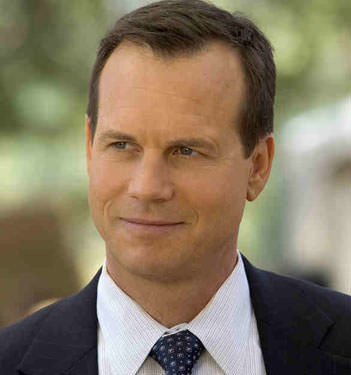
The polygamists have the right idea in some ways. Let's select one person who will serve as the guide for how the relationship will be arranged and everyone will try to align to that goal. Sure, there's less individual freedom. But in sacrificing that, I bet you gain some harmony. When you have four people all with their own vision for where the relationships should go, it can be chaotic. A benevolent patriarch could serve as a leader with a vision for this unruly vehicle. He (because at least in traditional polygamy, it's always a he) could be the arbiter of disputes, the person who makes the final decision when we just can't come to consensus.
If you've read “The Paradox of Choice” by Barry Schwartz or one of several other studies and books on the nature of happiness, you know that although we as humans seem to value the ability to make our own choices, in reality it often doesn't make us happier in the long run. For example, although we seem to have the illusion that choosing our own mate well is really key to our happiness, in fact research shows that arranged marriages are just as happy as self-selected marriages. Really, it's not so important exactly which path we all choose – as long as everyone can move down that path together without excess conflict. It's when we're pulling in different directions that it causes pain, like being drawn-and-quartered.
Wait, did I just say I need some dictatorial man to come in and tell me what to do? That doesn't sound like me.
I don't want for one minute to downplay the tragedies associated with polygamy. It's clear that historical fundamentalist polygamy as well as its current practice around the world is and has been the vehicle for systematic coercion, abuse, and neglect of women and children. However, it's also true that there have been a lot of long-term, successful polygamous relationships worldwide where one man was married to two or more women for life. On the other hand, there are relatively few long-term polyamorous relationships. When I read an article about successful poly relationships, they tend to fall into one of two models:
“The triad met three years ago at a dinner party, and have been together ever since. Ryan moved in with the couple six months ago.”
In this case, they consider a relationship that's lasted for three years a long one. And they've only been living together for six months. Although I agree that is pretty long in the poly community, in a bigger sense that's not long at all! I've been with my husband for eighteen freaking years. At three years we hardly knew each other. We had all kinds of misconceptions about our partner and what our relationship would be. Noted anthropologist Helen Fisher says that New Relationship Energy (NRE) can last up to three years! They might still be high on norepinephrine and dopamine. They haven't even hit the seven year itch.
The other model is:
“Mary and Joe have been together for nineteen years, and their relationship has been open for 13 of those years. During that time, both Mary and Joe have had a number of intense relationships with other people. Mary has been with her current boyfriend for a year and a half, and Joe recently started dating someone new.”
So, Mary and Joe have had a very successful and long-term poly relationship with each other … but their relationships with other people come and go. They have a long-term life-long successful committed relationship with each other, and then are serial polyamorists with other partners.
I know there are a few triads, quads, and bigger poly networks that have been together longer than that. Terisa Greenan and her 11+ year relationship with two men comes to mind. It can and does happen. But it just seems like more often it doesn't.
In comparison, the polygamists are relationship longevity super-stars! I've been watching Big Love and recently read “Shattered Dreams: My Life as a Polygamist's Wife” by Irene Spencer, so I've been thinking a lot about the similarities and differences between polygamy and polyamory. Why the different outcome in longevity? They have the same problem of having to deal with many different adults with different viewpoints and desires and needs.
I think there are several reasons for this difference, but in my mind they boil down to two things. First, the motivation for entering into religious polygamy is very different from for most people entering into polyamory. Polygamists usually believe there is a religious calling and that they are honoring their god by entering into multiple relationships. In many cases, they live in a society which supports polygamy and enforces the notion that it is the moral thing to do. This provides a strong motivation for resolving issues and continuing the relationship. By contrast, most people who enter into polyamory do so for personal satisfaction and growth. If the poly relationship is no longer providing satisfaction, it is not meeting one of its primary reasons for existing. The religious polygamist had a reason for entering the relationship which encourages longevity, even in the face of dissatisfaction; the polyamorist has a reason for entering the relationship which encourages leaving it when it no longer fulfills personal growth and satisfaction needs.
Second, religious polygamous relationships generally have one man married to many women, and the man has the final call on any decision. There may be arguments and drama and disagreements about how to move forward, but there is someone who in the end picks which way the relationship will go, and everyone is required to follow. On the other side, in polyamorous relationships, no one is in charge. It's hard enough to come to a consensus decision in a relationship which only has two people. Try it when there are four. It's rule by committee for relationships. And that's the best case scenario. In all honesty in most cases there is no committee – just individuals making individual decisions and pulling things in all different directions. Sometimes having a driver would be nice.
But ultimately that would never work for me. I would hate having one person in charge. If your primary goal is making a relationship last as long as possible – regardless of how good the relationship is – then put someone in charge and do what he says. If your goal is personal development, personal satisfaction, greater understanding of your thoughts and emotions, and a greater understanding of your partner, then you'll have to take your chances on a crazy roller coaster with no one at the switches and see where you end up.


1 Comment
A very interesting taxonomy of poly relationships. I wonder if there are not a few other models, some perhaps only theoretical so far, that could be explored? Religious polyamory, for instance :-), or some kind of polyamory structure whereby everyone agrees on the ‘constitution’ of the relationship and one person serves for a period of time as the arbiter of disputes (supreme court) about those ‘rules’. <– Just musing. The anarchy model (everyone decides on their own) seems like it builds in from the start a sunset to the relationship, since people's worldviews naturally drift apart over time in the absence of some central set of mantras or guidelines. This is why a lot of traditional families experience divorce shortly after the kids leave for college – they let themselves drift apart (different hobbies, friends, interests) until the only thing they had in common was joint parenting of the children, which is greatly reduced when the leave the nest. There are likely similar forces at work in poly families, especially when everyone is doing their own thing. A matriarchy/patriarchy has some advantages when it comes to cohesion. I also now begin to wonder about the D/s components to some poly relationships that I see; not the stereotypical bdsm forms, but the milder case where one member is very very alpha (in personality), perhaps benevolently so, and the other members like/want/need someone who gives them structure/support/guidance… I see that a lot these days, but perhaps because I'm actively watching for it now. I would welcome anyone's thoughts on this.